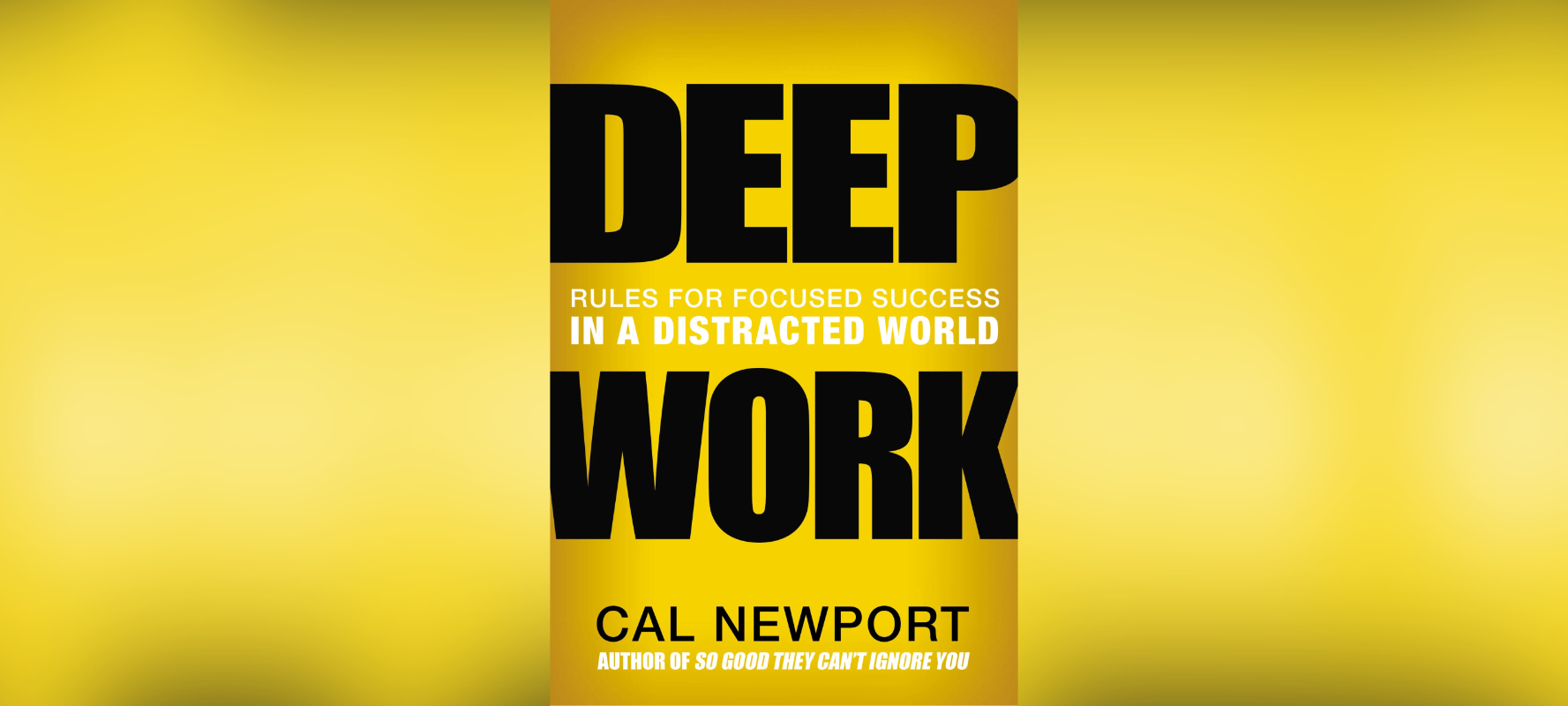Deep Work
As a person who has a tendency to multi-tasking, I’m worried I’ve broken my brain. Well at least that’s my takeaway after reading Cal Newport’s book Deep Work about the importance of deep, focused work at a time when it’s easier than ever to be in a constant state of distraction.
I’ve been listening to Newport’s podcast for a bit and reading his newsletter that often touches on similar topics, but Deep Work is where he first outlined many of his ideas on focus, distraction, and the huge opportunity for knowledge workers who turn the other direction to get ahead in their lives and careers:
The Deep Work Hypothesis: The ability to perform deep work is becoming increasingly rare at exactly the same time it is becoming increasingly valuable in our economy. As a consequence, the few who cultivate this skill, and then make it the core of their working life, will thrive. (Page 14)
The book is structured around the following main ideas:
The Value of Deep Work: Newport posits that deep work is crucial for mastering complicated information and producing better results in less time. This skill is becoming scarcer in our increasingly distracted world but is more valuable in the knowledge economy.
Working Deeply: Newport offers strategies for cultivating a deep work habit. This includes working with greater intensity and creating rituals and routines that foster the ability to concentrate deeply. Key suggestions include minimizing distractions, scheduling deep work blocks, and adopting a work philosophy that accommodates deep work. (More on those philosophies in a bit.)
Enhancing Focus: In the last several sections on the book, Newport outlines several strategies to cultivate deep work. He emphasizes the importance of embracing boredom to train the brain for focus, advises limiting social media to minimize distractions, and recommends reducing shallow tasks through delegation and careful scheduling. Together, these practices aim to create a productive environment where deep, concentrated work prevails, ensuring that valuable, skill-enhancing tasks receive the attention they deserve.
As a person already bought into the idea that deep work is valuable and that meetings and emails are the devil, I got the most value out of the book’s actionable advice and strategies that demonstrate how I can implement deep work principles to improve my productivity, satisfaction, and success.
Thinking of focus as a skill that needs to be practiced and that can atrophy if you don’t, is a real eye-opener and something I am already making core to my attitude and how I spend my time.


